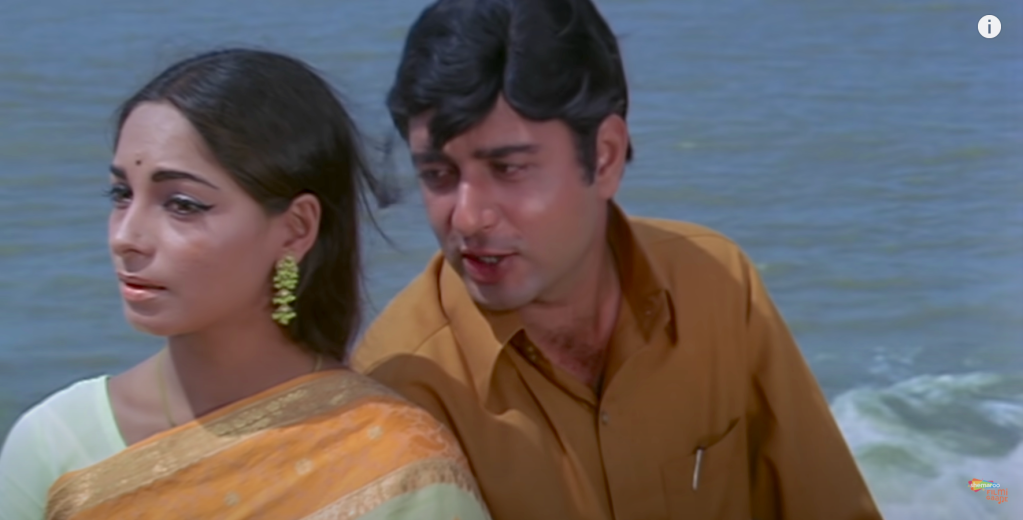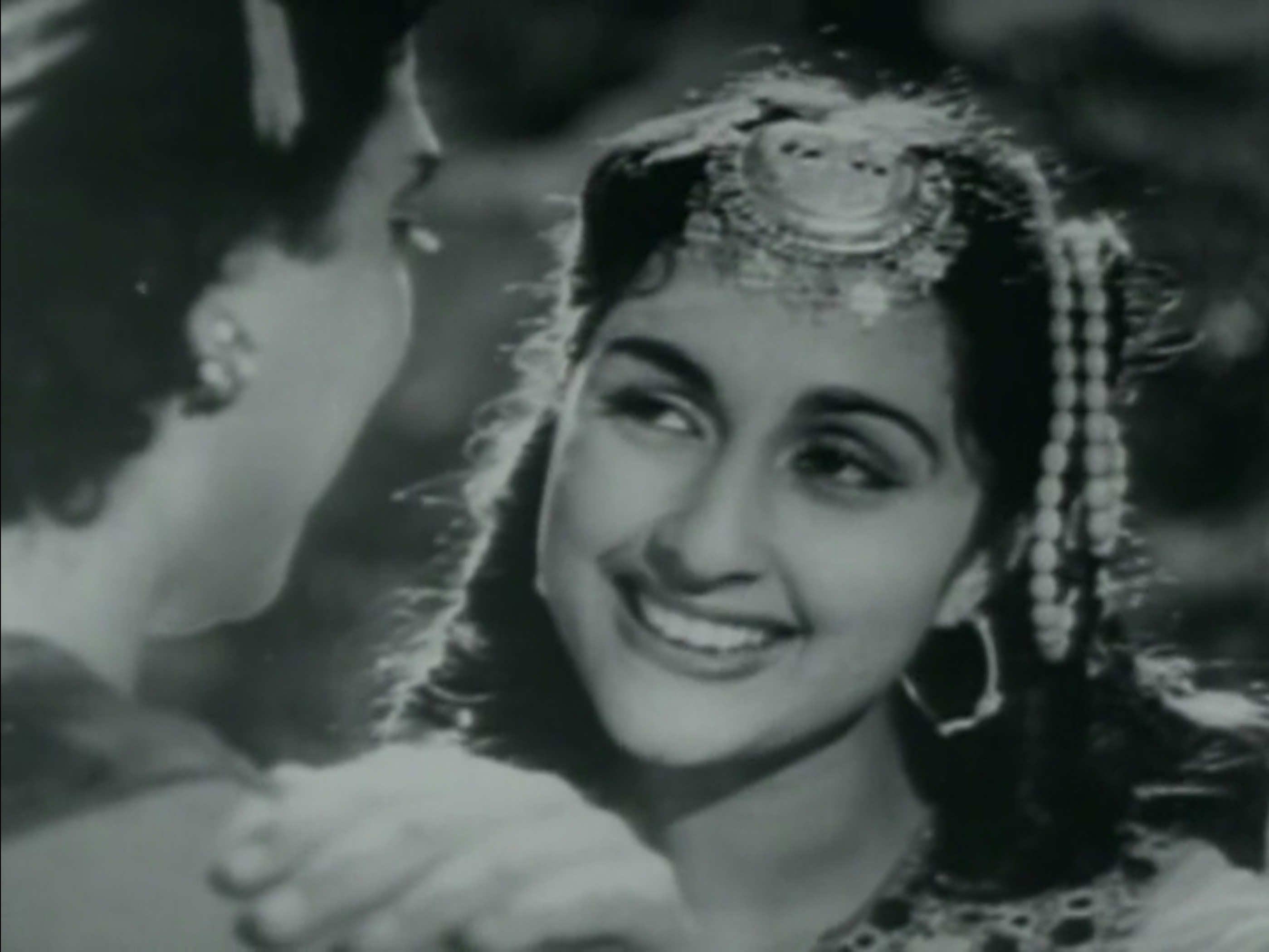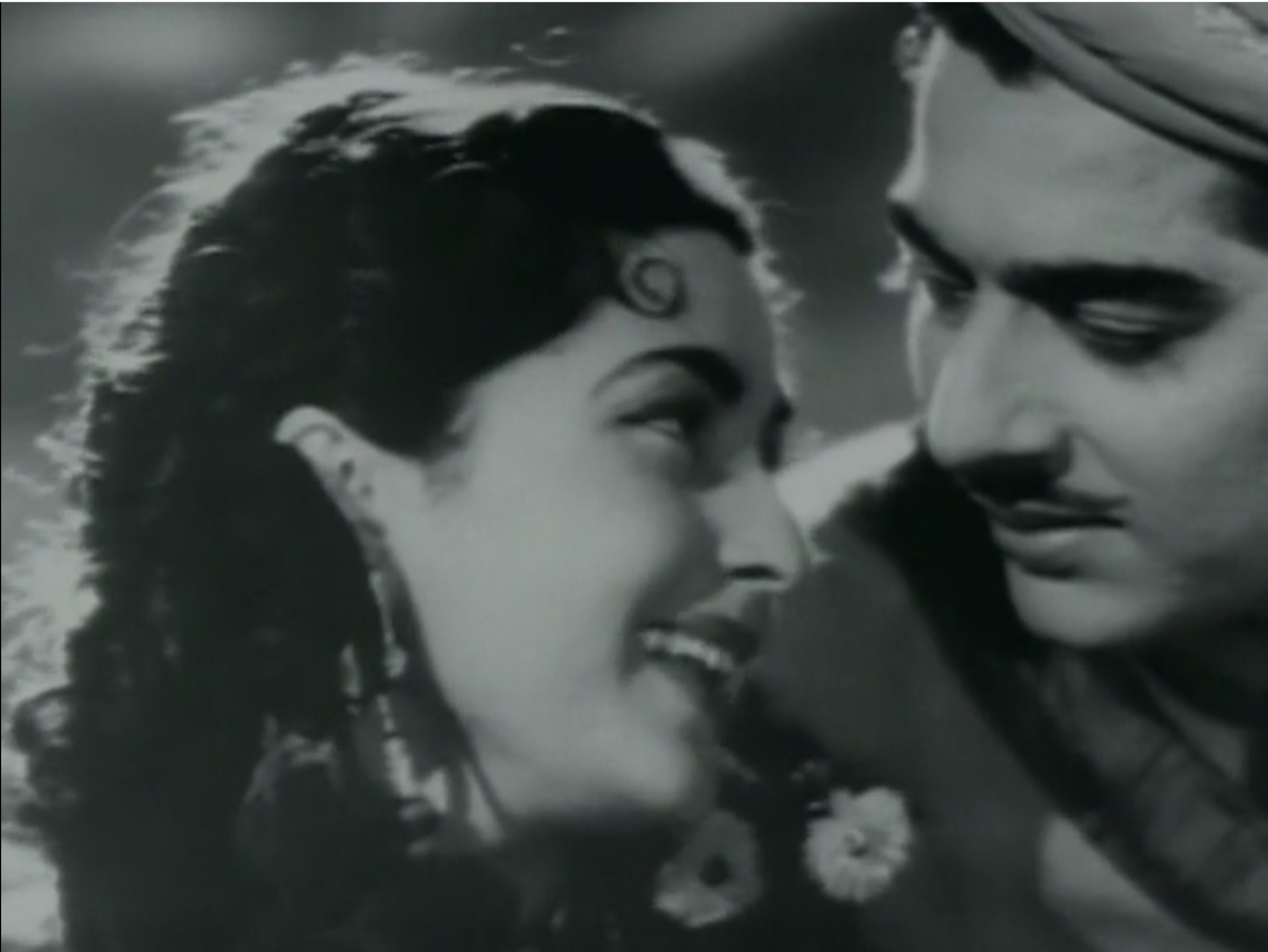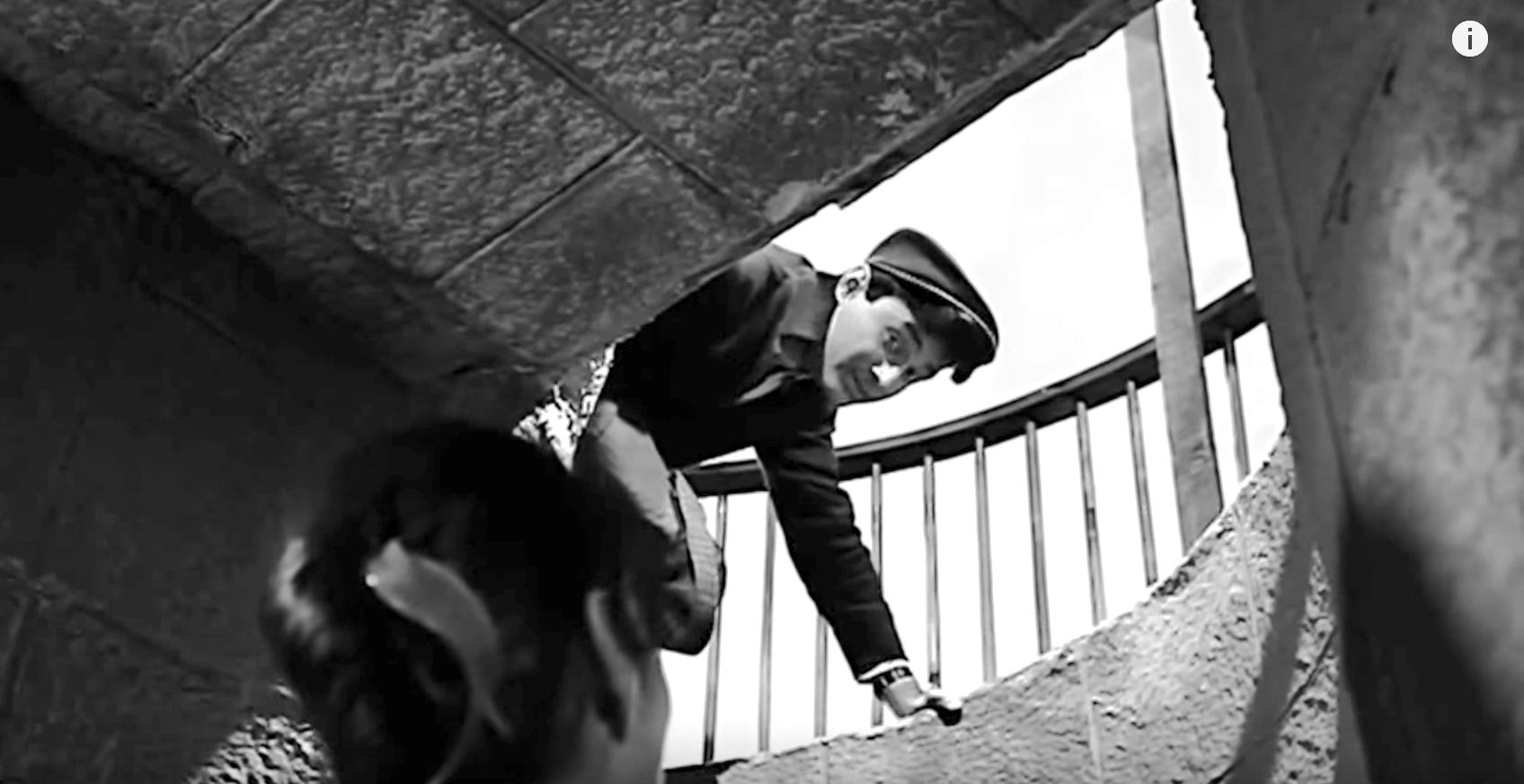
Today we showcase the lyrics and English translation of the romantic “Raat Kali Ek Khwab Mein Aayi” from the film Buddha Mil Gaya (1971).
I admit, I had my doubts when I checked out the B-grade lineup in this film. But I should have known that the same director Hrishikesh Mukherjee who brought us Anand (1971) and Bawarchi (1972) would not let us down! Buddha Mil Gaya (a reference to the memorable song of the same name from Sangam 1964) is an interesting blend of genres: a romantic-comedy-murder-mystery-musical (exemplified by the likes of Teesri Manzil 1966). The “buDDha” (that is, elderly male) in question, is played delectably by Om Prakash and forms the core of the mystery. Is he an innocent missing person or a cunning murderer?

The film’s ensemble shines in unexpected ways: Aruna Irani, usually stuck as the eternal vamp, plays a plucky feminist, and everyone’s favorite mean dadima, Lalita Pawar, milks the comic scenes. Perhaps my favorite moment is when sidekick Deven Verma cross-dresses in a big song-and-dance sequence at the film’s finale. He gives the film’s villain a seductive wink that truly nails it.
Of course, there is also a traditional romantic duo, played by Navin Nischol and Archana. While Nischol had a long television career after his Bollywood stint fizzled, Archana faded out of the entertainment industry almost entirely. I’ve tried to do some research to understand why and haven’t come up with any leads (please drop us a comment if you know!). She’s no glamour queen, but her “girl-next-door” charm wins you over and I would have liked to see her in more!
Archana has introduced her love interest, played by Nischol, to a flirtatious music student eager to learn singing from him. When she thinks Nischol might be tempted, Archana sulks, prompting Nischol to burst into “Raat Kali Ek Khwab” against a backdrop of the scenic Chowpatty beach in Mumbai (Hrishikesh really had a thing for these beaches and filmed “Zindagi Kaisi Hai Paheli” similarly the same year). In “Raat Kali” Majrooh Sultanpuri, the genius behind many of your favorite Urdu poems, blesses us with lines like “tum ne qadam to rakhaa zameen par | seene mei.N kyo.N jhankaar hui?” at which I die and go to heaven.

We hope you enjoy the lyrics and our English translation of this beloved song below sung by Kishore Kumar and composed by R.D. Burman. Which line of Urdu poetry makes YOU swoon?
Raat Kali Ek Khwab Mein Aayi Lyrics & English Translation
Raat kalii ek khwaab mei.N aayii, aur gale ka haar huii
A flower of the night came to me in a dream, and her embrace became a garland around me
Subah ko jab ham nii.Nd se jaage, aa.Nkh tumhii se chaar huii
When I awoke in the morning, our eyes met
Raat kali ek khwaab mein aayi, aur gale ka haar huii…
Chaahe kaho isse merii mohabbat, chaahe ha.Nsii mei.N uDaa do
If you would like, call this my love, if you would like, laugh it away
Yeh kyaa hua mujhe, mujhko khabar nahii.N, ho sake, tum hii bataa do
What is this that has happened to me? Even I have no idea, but if you can, please tell me.
Tum ne qadam to, rakhaa zameen par siine mei.N kyuu.N jhankaar huii?
Your footsteps fell upon the ground, but why then did I sense a trembling in my heart?
Raat kali ek khwaab mein aayi, aur gale ka haar huyi…
Aa.Nkho.N mei.N kaajal, aur laTo.N mei.N, kaalii ghaTaa ka baseraa
In your eyes is kaajal, and you hair is like the shelter of a dark cloud
Saa.Nvali suurat, mohinii muurat, saavan ruth kaa sa.Nveraa
Your rich brown complexion, enchanting figure, you are like the morning of the monsoon season
Jabse ye mukhDaa dil me khilaa hai, duniyaa merii gulzaar huii
When this face bloomed in my heart, my world became a rose garden
Raat kali ek khwaab mein aayi, aur gale ka haar huyi…
Yuu.N to hasiino.N ke, mahajabiino.N ke, hote hai.N roz nazaare
By the way, beautiful women and gorgeous faces present themselves to me every day
Par unhe dekh ke, dekha hai jab tumhe, tum lage aur bhii pyaare
But when I see them, and then I look at you, you appear even more lovely
Baaho.N mei.N le luu.N, aisii tamannaa, ek nahii.N, kaii baar huii
I desire to take you in my arms, not once, but many times…
Raat kali ek khwaab mein aayi, aur gale ka haar huyi…
Raat kalii ek khwaab mei.N aayii, aur gale ka haar huii
A flower of the night came to me in a dream, and her embrace became a garland around me
Subah ko jab ham nii.Nd se jaage, aa.Nkh tumhii se chaar huii
When I awoke in the morning, our eyes met
Raat kali ek khwaab mein aayi, aur gale ka haar huii…
Glossary:
raat: night; kalii: flower; khwaab: dream; gale: arms; haar: garland; subah: morning; nii.Nd: sleep; jaagnaa: to awaken; aa.Nkh chaar hona: to make eye contact (literally, two eyes became four); mohabbat: love; haN.sii: laughter; khabar: knowledge; qadam: footstep; zameen: earth; seenaa: chest; jhankaar: tremble, jingle; kaajaal: eyeliner; laT: hair locks; kaalii: dark; ghaTaa: cloud; baseraa: shelter, abode; saa.Nvalii: tanned, rich brown; suurat: face; mohinii: enchanting; muurat: image, figure; saavan ruth: rainy season; sa.Nveraa: morning; mukhDaa: face; khilnaa: to blossom; duniyaa: world; gulzaar: rose garden; hasiinaa: beautiful woman; mahajabeen: gorgeous face (see our deep dive into zohra jabeen for more!); roz: every day; baahe.N: arms; tamannaa: desire; kaii: many
This gem was requested by diehard fans Prabha Nair and Lakshmi. Thank you for this lovely request! We hope that wherever you are, you are continuing to stay safe and can get the vaccine soon!
– Mrs. 55















